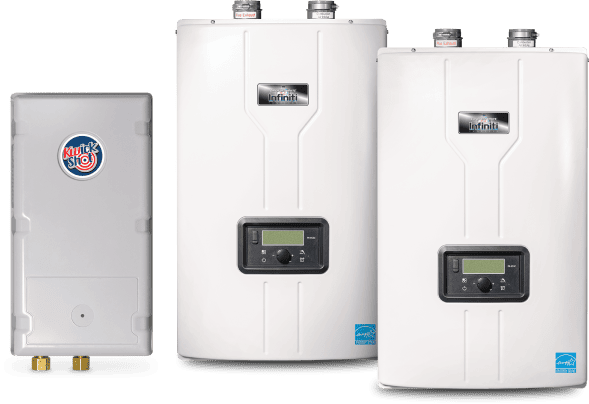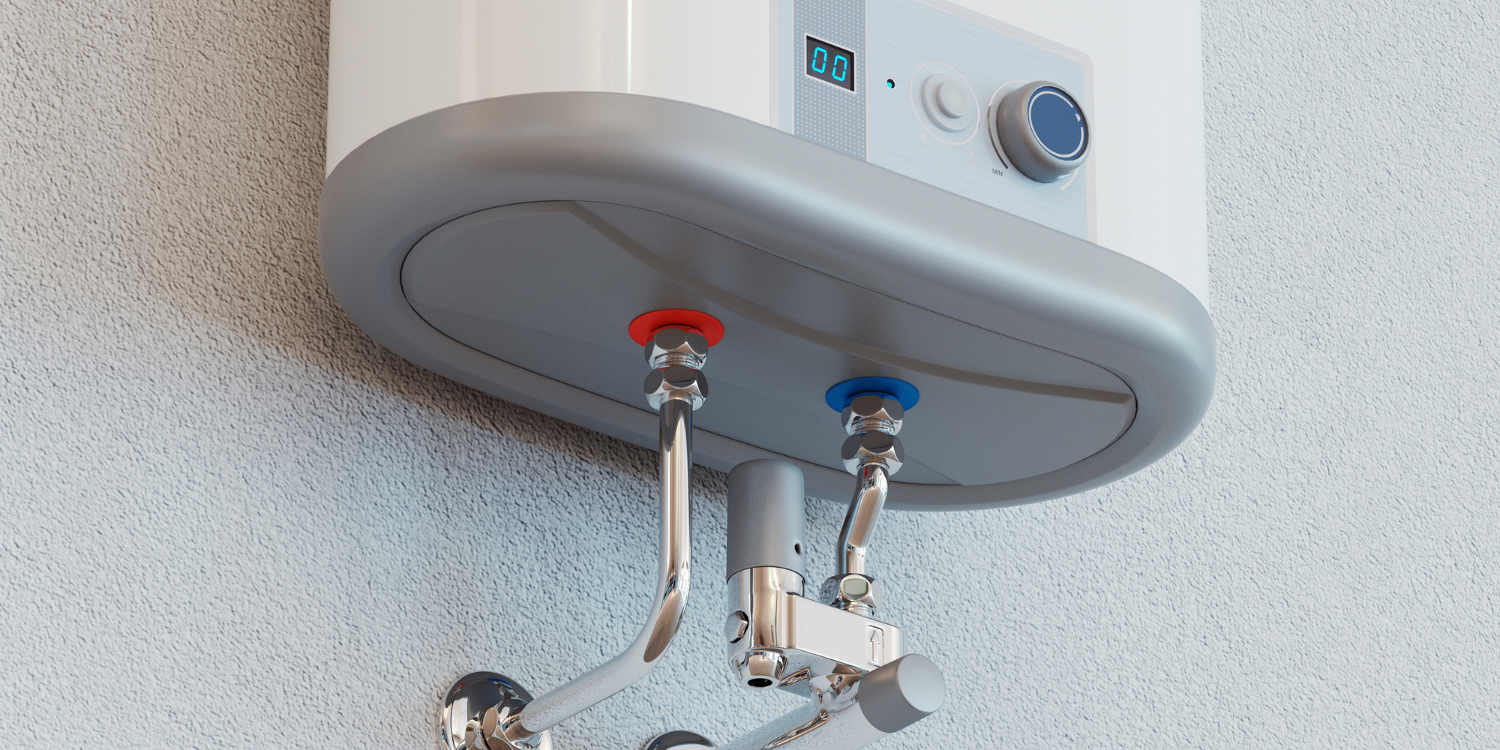Focusing On Energy Savings To Space Efficiency: The Benefits Of Tankless Water Heaters
Focusing On Energy Savings To Space Efficiency: The Benefits Of Tankless Water Heaters
Blog Article
Almost everyone has got their own piece of advice in relation to Six Benefits of a Tankless Hot Water Heater.

In a world where convenience and performance reign supreme, it's not a surprise that house owners are constantly looking for smarter means to handle their home's energy consumption and convenience. One innovation that has gradually obtained popularity is the tankless hot water heater. Yet what exactly makes these systems stick out from the traditional tank-based versions most of us grew up with? Let's dive in and check out the benefits of tankless water heaters, assisting you choose if it's time to make the switch in your home.
Intro
Image this: you step into the shower after a long day, anticipating a calming cascade of hot water, just to be welcomed by icy droplets since the last person utilized everything up. Noise familiar? Typical water heaters save a fixed quantity of hot water, meaning you go to the mercy of that container's supply. Tankless systems, on the other hand, warm water as needed. Say goodbye to going out mid-shower, no more fumbling with routines just to make sure hot water is offered.
Recognizing Tankless Water Heaters
What Are Tankless Hot Water Heater?
Tankless hot water heater, in some cases called on-demand or instant water heaters, give warm water only as it's needed. Rather than saving gallons of pre-heated water, these units kick into action the minute you switch on the faucet. Water travels through a heat exchanger, heating up in real-time, implying you get an undisturbed circulation of warm water without the requirement for a big storage tank resting lazily by.
Exactly how Do They Differ from Conventional Solutions?
Traditional heaters hold a storage tank of warm water, using energy to maintain that tank at a consistent temperature. Tankless systems get rid of the standing supply, reducing squandered energy and the cumbersome impact of a big cyndrical tube. Essentially, you're upgrading from a "accumulation" frame of mind to a "made-to-order" approach.
Typical Types of Tankless Devices
Tankless water heaters usually are available in two selections: gas and electric. Gas designs often tend to deliver greater flow rates, ideal for bigger homes, while electrical models typically offer smaller homes and are normally easier to set up. In addition, some systems are designed for point-of-use (serving one fixture) while others can manage the whole home's warm water demands.
Secret Benefits of Tankless Hot Water Heater
Power Efficiency and Cost Financial Savings
No more heating a titan tank's well worth of water and maintaining it warm all the time. Tankless heaters lower standby power losses, which can decrease utility costs. While the initial expense might be higher, the long-lasting savings often warrant the financial investment.
3. Space-Saving Style
If your home is short on storage, getting rid of the cumbersome storage tank frees up useful area. Tankless systems are portable and can commonly be placed on wall surfaces, concealed in corners, or installed in tight energy wardrobes without hogging the entire room.
4. Longer Life expectancy
A well-kept tankless water heater can outlive its tank-based relative. Conventional tanks might last 10-15 years, while tankless versions can maintain downing along for twenty years or even more, making them a strong investment with time.
1. Limitless Hot Water Supply
Ever before had to schedule showers so everybody gets their fair share of hot water? With tankless, that becomes a distant memory. As long as the heater's flow capacity isn't exceeded, you can take back-to-back showers without becoming a popsicle.
5. Improved Water Top Quality
Keeping water in a storage tank can sometimes cause sediment accumulation or a somewhat "off" taste. With tankless systems, fresh water is heated up on the spot, decreasing the chances of sediment accumulation and possibly providing cleaner-tasting water.
Factors to consider Before Changing
Though the benefits are engaging, it's smart to think about a couple of variables prior to totally devoting.
Assessing Your Home's Water Usage Patterns
If your home concurrently makes use of numerous components with high warm water need, see to it the device's flow price fulfills your demands. Understanding your usage patterns assists you select the right dimension and type of tankless heater.
Upkeep and Treatment Tips
Tankless systems are reasonably reduced maintenance, yet they aren't set-it-and-forget-it appliances.
Regular Cleansing and Descaling
Hard water minerals can accumulate in the heat exchanger, influencing efficiency. Regular descaling (commonly advised yearly) keeps the unit performing at peak performance.
Annual Expert Inspections
A yearly checkup from an expert guarantees small problems are captured early. They'll assess the device's performance, look for leakages, and help keep ideal efficiency.
Preliminary Financial Investment Costs
Tankless heating units usually include a greater in advance price tag. In between the unit itself and possible setup modifications, the preliminary expense could give you sticker label shock. Yet keep in mind to view it as a lasting investment.
Installment Demands
Depending on your home's facilities, you could need additional electrical ability or gas line upgrades. Ensure you comprehend the installment requirements and seek advice from a professional to avoid surprises.
Guaranteeing Appropriate Ventilation
For gas versions, proper ventilation is important to securely get rid of exhaust gases. Make certain airing vent systems are tidy and appropriately mounted to prevent any possible security hazards.
Comparing Different Brands and Models
Not all tankless hot water heater are developed equal.
Researching Reliable Producers
Seek reputable brands with a history of creating quality units. A reputable maker typically gives far better consumer assistance and longer guarantees.
Installment: DIY or Expert?
While some homeowners enjoy dealing with tasks themselves, tankless setup may not be the very best time to burst out the toolbox.
Benefits and drawbacks of Do It Yourself Setup
A do it yourself mount could save money, however it features threats. Wrong setup can cause inefficiency or security issues. If you're handy and have experience, it could be practical-- however proceed with care.
Reviewing Reviews and Customer Comments
Customer testimonials and comments from neighbors or pals that have gone tankless can offer useful understandings. In some cases, real-life experiences can be much more informing than advertising and marketing sales brochures.
When to Call an Expert Plumbing
For the majority of, calling a pro guarantees everything's done properly. A professional plumber understands neighborhood codes, sizing requirements, and venting specifications, lowering the threat of problems.
Making best use of Effectiveness
You've invested in a tankless device-- currently optimize its performance.
Optimum Temperature Setups
Most individuals set their units between 120-140 F. Adjusting the temperature can boost convenience and financial savings. Experiment to find a wonderful spot that doesn't squander power.
Pairing with Low-Flow Fixtures
Intend to stretch your unit's capabilities? Think about mounting low-flow showerheads and taps. They minimize water usage, permitting your tankless system to deliver a constant stream of hot water without straining.
Environmental Influence
Tankless hot water heater align with greener living goals.
Lowered Carbon Impact
By using much less power and only heating water as required, tankless systems can lower your home's carbon impact, lowering your environmental influence.
Conserving Natural Resources
Much less power consumption and much less thrown away hot water equate right into fewer natural deposits being used, an environmental win-win.
Who Benefits A Lot Of from Tankless Heating systems?
The charm of tankless heating units is that they can suit a selection of families.
Big Family Members vs. Single Occupants
Huge families could love the limitless warm water supply, while solitary occupants value the power financial savings from not heating an entire storage tank for just a single person's early morning shower.
Home Owners with Restricted Space
If your home is short on square video footage, losing the bulky container liberates area for other essentials-- or maybe simply a lot more breathing space.
Eco-Conscious Customers
Going tankless aligns with environmentally friendly values, ensuring you're not losing energy or resources.
Future Trends in Tankless Water Heaters
The world of home appliances is ever-evolving, and tankless hot water heater are no exception.
Innovations in Technology
R&D is continuously enhancing warmth exchangers, making devices a lot more effective and durable. Future designs could be also quieter, much more small, and far better fit for varying environments.
Smart Home Assimilation
Picture readjusting your water heater's temperature by means of an application or obtaining upkeep alerts on your phone. As clever home technology advancements, we'll see more connectivity and comfort.
Verdict
Choosing a tankless hot water heater is more than just updating your home's warm water system; it's buying long-term comfort, power efficiency, and a greener way of life. By considering your household's water use, being mindful of setup demands, and committing to routine upkeep, you can appreciate a stable stream of hot water without the luggage of a cumbersome container. As innovation evolves, you can anticipate even smarter, much more effective tankless solutions that not only make your life simpler but likewise profit the world.
5 Benefits of Tankless Water Heaters
Save Valuable Space
Since tankless water heaters do not have a massive 40+ gallon tank of water, they are considerably smaller and can fit in more narrow spaces in your home.
If you are working with limited square footage, a tankless water heater will still provide you with the hot water you need while taking up significantly less space in your home. While the exact size of a tankless water heater varies depending on the brand, some are as small as a carry-on suitcase.
Endless Supply of Hot Water
While a traditional water heater preheats and stores your water in the tank, tankless water heaters do not rely on a reservoir system.
This means that they do not run out of hot water like traditional water heaters since they make hot water as needed. Traditional water heaters need to stop and reheat water when the tank inevitably runs out, but tankless water heaters do not have this issue.
Provide Warm Water On-Demand
As mentioned above, tankless water heaters do not preheat a certain amount of water and then store it in a massive tank to be used later. An advantage of installing a tankless water heater includes water being heated instantly whenever you turn on the faucet.
When you turn on the water, it will travel through a heat exchanger in the unit and be heated with either an electric element or a natural gas burner. Gone are the days of having to ration out your hot water to make sure that you do not run out.
Longer Life Cycle
Not only do tankless water heaters provide an endless supply of hot water for your home whenever you want it, but these units tend to have a longer lifespan than water heaters with tanks.
Tanked water heaters have an average lifespan of around 10 years, as the tank is prone to corrosion, leading to serious issues. In comparison, tankless water heaters can last for around 15 to 20 years with the proper maintenance and tune-ups.
Energy Efficient
Compared to traditional water heaters, tankless water heaters are a more energy-efficient water heating option for your home. Tank water heaters must heat and reheat the water stored in the tank throughout the day, even if you are not home.
This energy use adds up over time, leading to an increase in your energy bills and added strain on your unit. A benefit of buying a tankless water heater includes saving money since it only operates when you turn on the hot water. Since it only heats up as needed, this can decrease your energy bills and save you money in the long run.
https://callrandazzo.com/blog/5-benefits-of-tankless-water-heaters/

I found that write up on Unveiling the Hot Trend: The Benefits of Tankless Water when doing research the search engines. Remember to take the time to promote this blog posting if you enjoyed it. Kudos for being here. Return soon.
Request Estimate Report this page